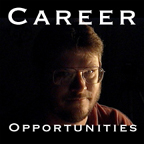 I must confess that I didn’t watch the launch of the final Space Shuttle mission today. I couldn’t bring myself to be in a celebratory mood since I see today’s launch as yet another step in a long list of “can’t” in today’s America. We can’t do this. We can’t do that. Even worse, we can’t afford to do this or that. Can’t often has nothing to do with external realities of money or knowledge. It has much more to do with a lack of will. Can’t allows us an easy excuse to stop doing those things that are most important. Can’t allows us to continue a long, slow slide into mediocrity, seemingly without blame. “It’s not my fault, we can’t afford it!” We can do these important things if we are innovative and creative and if we find the ability to see the value that is often found in these long-term programs.
I must confess that I didn’t watch the launch of the final Space Shuttle mission today. I couldn’t bring myself to be in a celebratory mood since I see today’s launch as yet another step in a long list of “can’t” in today’s America. We can’t do this. We can’t do that. Even worse, we can’t afford to do this or that. Can’t often has nothing to do with external realities of money or knowledge. It has much more to do with a lack of will. Can’t allows us an easy excuse to stop doing those things that are most important. Can’t allows us to continue a long, slow slide into mediocrity, seemingly without blame. “It’s not my fault, we can’t afford it!” We can do these important things if we are innovative and creative and if we find the ability to see the value that is often found in these long-term programs.
Podcast: Play in new window | Download
Subscribe: Apple Podcasts | RSS
 CareerCampSCV is just a week away! July 16, 2011 College of the Canyons
CareerCampSCV is just a week away! July 16, 2011 College of the Canyons
Not in the Southern California area? Organize your own CareerCamp in your area. Visit CareerCampInternational.com for more info!
Talk to any businessman or business expert today and they will constantly repeat the word innovation. I truly believe we need to innovate dramatically and in every way, but can’t is the enemy of innovation. Why innovate when we can simply abdicate our responsibilities to ourselves and others by saying, “It can’t be done!” Throughout its history, America has often been a place of infinite possibilities. In just my short lifetime we have gone from a black and white television to high-definition and 3D. We went from driving automobiles to putting men on the moon, to placing probes into the deepest parts of our solar system. We went from mechanical calculators to the home computer to the smart phone. We have proven we can innovate, if we want, but it seems we have lost our desire.
We can find a solution to hunger, the national debt, homelessness, unemployment, global competition and a host of other challenges facing us — or we can simply give up now and say we can’t do anything about them. I, for one, will not “go gently into that dark night”. Down that path lies madness and ruin as surely as anything that can be known.
Disinfecting ourselves from this can’t virus starts at a very personal level. In our own lives and work, we need to reject “can’t” as an answer and see it as the excuse that it is. We might not be able to accomplish something today, but it is almost guaranteed that we can accomplish it in the future if we want it enough.
If you fall into the trap of the constant can’t, your life and work will suffer. Your boss doesn’t care what you can’t do. Say can’t enough and you are likely to be out of a job — and that is probably the way it should be. Each day should be dedicated to doing something important, building something better, not an endless repetition of meaningless paper-shuffling. Facing adversity is part of every life. How we deal with it is unique. We can crawl back into our hole and ignore the problem or continue to look for a solution that we know is out there, waiting to be found.
Fight against can’t at every step. Question every can’t that enters into your life and work. There is no need to be angry or threatening about it, but figure out if the problem truly can’t be solved — today — or if someone simply doesn’t want to do the work to solve it. There is a deep difference between these two positions. Too often can’t arises out of lack of motivation or simple laziness. It is always easier to complain about something than doing the work to fix it. As a dedicated careerist, though, you must avoid it at all costs.
Next, attack the can’t that occurs in your groups, your departments, your unions, your businesses, your governments. Yes, some problems are very, very difficult and require bridging the gaps between dramatically different ideologies. That said, we can never let these differences prevent us from doing something. The first agreement that must be found is that something needs to happen or change. We must agree that it is in everyone’s best interest that something be decided. To sit still and say can’t doesn’t just hold up the status quo, it holds us back, leaves us behind and makes it even harder to get to where we need to be. Gridlock isn’t standing still — it means moving backwards at an ever more rapid rate.
I mourn the end of the Shuttle program and the can do attitudes of the people involved in its creation. When faced with can’t, they replied “maybe not yet, but soon. Then they went out and did it. We should all take a great lesson from the innovators that have changed so much in the last 40 years. We need to let them and their actions mentor us for the next 40 years and beyond. Even more important, we need to let them show us the way out of our can’t addiction and back to a more innovative, productive and simply better world.
Reader/Listener Line @ 818-804-5049

